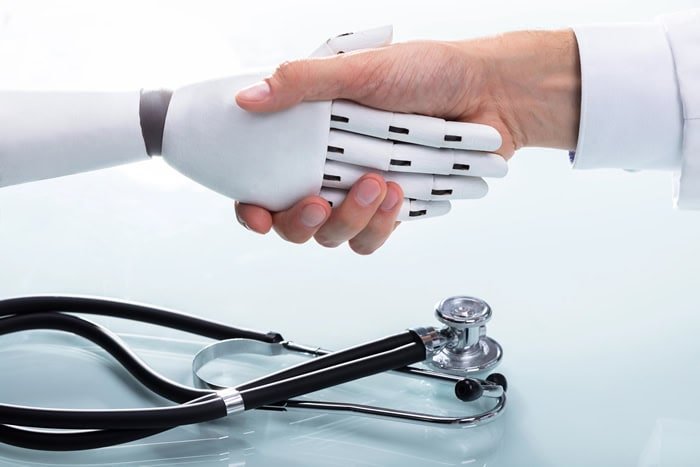Discover the current and future uses of AI in healthcare, how patients utilize AI for better health outcomes, and the concerns surrounding its implementation.
Although artificial intelligence (AI) has been around since the 1950s, it is now making significant strides in the healthcare sector. From assisting in diagnoses to predicting disease spread, AI is revolutionizing patient care and public health outcomes.
Current AI technology aids doctors in diagnosing patients, creating personalized treatment plans, and even forecasting disease patterns, benefiting both individuals and communities. The U.S. Food and Drug Administration (FDA) has approved various AI-enabled medical devices for tasks such as risk assessment, diagnostic imaging, surgical assistance, and preventive care.
Patients Harness AI for Health Improvement
Patients are also leveraging AI tools for health enhancement, such as smartwatches that monitor heart rate or devices that provide insulin dosage recommendations. These technologies utilize machine learning to analyze daily habits and offer personalized health insights based on individual needs.
AI empowers patients to actively engage in their healthcare by detecting health trends early and prompting timely interventions for potential issues or improvements.
Concerns Regarding AI Adoption
Despite its benefits, AI implementation raises privacy, bias, accuracy, and regulatory concerns. To address these issues, the White House has proposed a Blueprint for an AI Bill of Rights outlining principles for safe, fair, and transparent AI usage.
The Future of AI in Healthcare
Looking ahead, AI holds promise in enhancing patient-clinical trial matching, developing home health monitoring tools, and providing early disease risk notifications. Organizations like the American Medical Association offer guidance to healthcare professionals on incorporating AI ethically and legally into medical practices.
As AI technology evolves, it will continue to shape healthcare delivery, presenting both opportunities and challenges. By leveraging AI responsibly, we can advance personalized care and treatment solutions for better health outcomes.
While AI is not without flaws, its ethical and regulated use can empower individuals, communities, and global health initiatives, paving the way for a healthier future.


